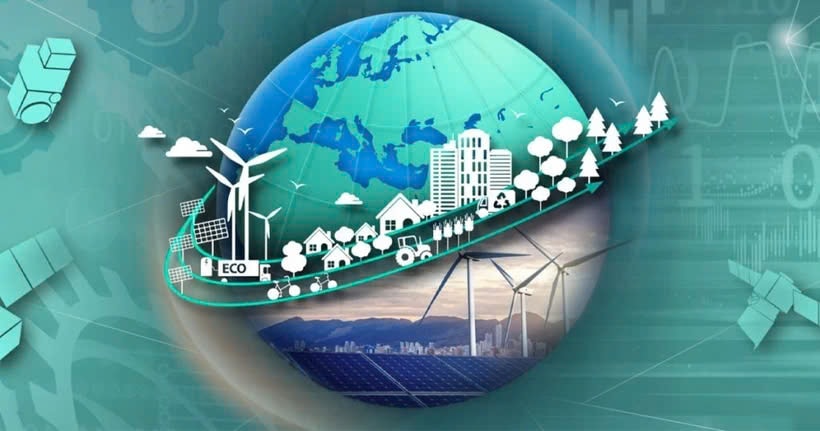Vietnam urged to build comprehensive national green transition strategy
Hanoi (VNA) - Vietnamese businesses are facing three major challenges in green transition, namely capital, skilled workforce, and technical solutions, according to the Private Sector Development Research Board (Board IV), under the Prime Minister’s Advisory Council for Administrative Procedure Reform.

Pham Thi Ngoc Thuy, Director of the Office of Board IV, reported that the board had submitted a report to the Prime Minister, assessing the readiness and challenges of Vietnamese businesses in green transition.
This report was based on a broad survey of 2,734 businesses, consultations with leaders from nearly 50 associations and key enterprises, on-site visits to factories, and discussions with international and local experts.
The report highlights that green transition is becoming a global race, with major countries investing substantial resources and establishing legal frameworks to promote it, both domestically and internationally.
Vietnam must act decisively to align with the government’s commitments at COP26 and COP27, ensuring the country takes advantage of international resources available for green transition.
Green transition requires more than isolated policies, it involves a system of policies and programmes, covering investment, trade, and economic development, while fostering green initiatives and reducing emissions.
Vietnam needs a comprehensive national green transition strategy led by the government, with close coordination between ministries, local administrations, the private sector, and the public. This strategy must have clear timelines, responsibilities, targets, and measures for monitoring progress.
According to the survey, 48.7% of businesses recognised the importance of emission reduction and green transition, with 16.9% considering it crucial.
However, 17.4% viewed it as unnecessary, and 33.9% only saw it as moderately important. Interestingly, both domestic and export-focused businesses showed similar levels of awareness about the need for green transition.
The agriculture and industrial sectors were more attuned to the importance of emission reduction than construction and services, with 59.6% of agricultural businesses and 54.1% of industrial firms acknowledging the necessity of green transition. Foreign-invested enterprises were slightly more ready for green transition than domestic companies.
However, 64% of surveyed businesses had made no preparations for green transition. Only 5.5% had taken steps to reduce emissions in key activities, and a mere 3.8% had tracked and reported annual emission reduction results.
This lack of readiness could create significant pressure in the future as more stringent international regulations come into effect.
The survey identified the three biggest challenges facing businesses in green transition such as access to capital, skilled workforce, and technical solutions. Green transition requires significant capital investment.
According to the World Bank, Vietnam needs an additional 368 billion USD for resilience building and emission reduction between 2022 and 2040, with the private sector's contributions expected to cover nearly 50% of the funding.
Currently, green finance in Vietnam remains underdeveloped. As of the end of 2023, green credit only accounted for 4.5% of total outstanding loans, and green bonds were scarce.
Although the government and international partners are working to support green projects, businesses are still struggling to access the necessary funds due to regulatory and administrative barriers.
Vietnam must address these challenges to ensure a successful green transition that is essential for the country’s sustainable growth and international competitiveness./.
VNA
